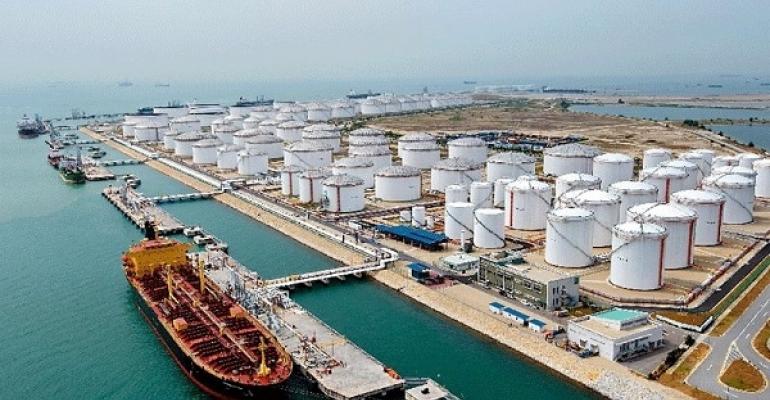In trying to provide some guidance on the emerging situation, Watson Farley & Williams (WFW) in a recent briefing suggested that while the shipping industry still relies primarily on US dollar-denominated transactions, the EU’s Blocking Statute is also a directly applicable law.
WFW acknowledged that shipping banks and insurers have understandably been cautious about Iran business since news broke that the US was about to re-impose sanctions lifted under the Joint Comprehensive Plan of Action (JCPOA). “The default position, therefore, is that compliance with US sanctions law will continue to be required by financiers and – as a consequence – the wider shipping industry,” WFW said.
“Against that, the Blocking Statute – for all the questions it raises – is directly applicable EU law which is backed, in principle, by an enforcement and authorisation regime. It cannot be ignored or dismissed,” the law firm reiterated.
From the previous round of US sanctions, the shipping industry has substantial experience of compliance, mainly due to the dominance of US dollar financing. And while WFW noted that “compliance can be a blunt instrument (in the sense of sometimes chilling transactions that may be lawful) it has the advantage of clarity”.
However in examining the new conditions, it added: “The Blocking Statute challenges that clarity, and thereby the industry enters uncharted waters. In effect, the US, and more particularly the EU authorities, have privatised a public international dispute.”
In providing possible solutions, WFW suggested three options, assuming the relevant parties are within the potential jurisdictional scope of both US sanctions and the EU Blocking Statute.
Read More: CMA CGM pulls out of Iran ahead of US sanctions
Firstly, if a party has good reasons not to do business with Iran other than compliance with US law, a case might be made that compliance with US law was incidental to a business decision. As a compliance matter, WFW suggested that these reasons should be documented contemporaneously with the decision.
Secondly, if non-compliance with US law would cause serious harm according to the Article 4 Implementing Regulation criteria, parties could consider applying to the European Commission for authorisation. They should however note the risk of being denied authorisation, proceeding to comply with US law anyway, and then facing national enforcement action (public or private) for breach of the Blocking Statute.
Thirdly, WFW also recommended a cover-all solution to in any case, have a detailed compliance paper trail considering both sides of the conflict and the steps taken to mitigate risks on both sides, to assist in any dealings with authorities.
In conclusion, WFW had various recommendations for different segments of the shipping industry. For shipping companies generally, but especially those which are bound by the EU Blocking Statute, who were doing or are contemplating doing business with Iran before the snap-back of US sanctions, they “will need in the first instance to consider carefully their own commercial and legal positions and also the terms of the restrictions in their financing documents, charter parties and not least insurance documents” WFW said.
The firm noted that the shipping finance sector is likely to be the most affected, with “difficult and immediate issues to address for some shipping companies and their financiers”.
As a result, “ship financiers who are bound by the EU Blocking Statute who have customers in that category will need to look closely at the sanctions provisions in their documents,” WFW advised.
For the industry in general, there are also issues about how financing documents, charter parties and insurance documents are now to be written in light of this difficult development. “Whilst there are no easy or immediate answers, the possibly unique seriousness of the issue means that it is to be hoped that some industry consensus quickly emerges,” WFW said.
Giving an indication of the preliminary and tentative nature of the situation, WFW noted that a close watch will need to be kept on developments, especially on the potential enforcement of the Blocking Statute. “It is not known yet how seriously Member States will take their obligations to enforce in the current international diplomatic context, or whether the law is adequately clear to permit effective enforcement or authorisation,” the firm cautioned.
“In appropriately clear and strongly-evidenced cases, applying for authorisation would provide a degree of legal certainty to operators while also testing the law, but equally, seeking authorisation in every case on a fail-safe basis may be counterproductive,” WFW concluded.
Copyright © 2024. All rights reserved. Seatrade, a trading name of Informa Markets (UK) Limited. Add Seatrade Maritime News to your Google News feed.


